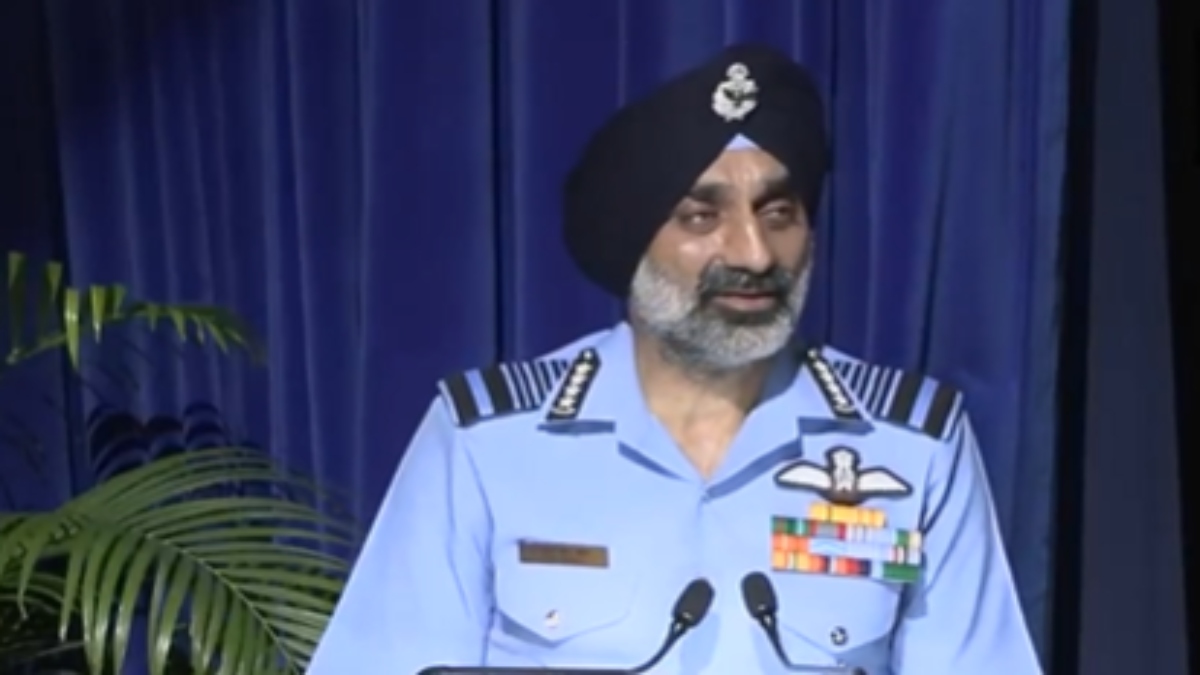“We were clear, our objective was to hit terrorist camps. We achieved that. Continuing the war could have affected us financially,” said Air Force chief Amar Preet Singh
Air Chief Marshal Amar Preet Singh on Thursday said that India halted military action against Pakistan after targeting terror camps because it wanted to avoid long-term economic consequences.
Emphasising the importance of responsible conflict resolution, he said that India’s decision to accept a ceasefire was driven by strategic clarity and financial prudence.
“We were clear, our objective was to hit terrorist camps. We achieved that. Continuing the war could have affected us financially,” News 18 quoted Singh as saying.
He also asserted that the world should look to India as an example of how to responsibly terminate a conflict after achieving strategic goals.
Drawing a direct link between the 2019 Balakot airstrikes and Operation Sindoor, Singh said that the Indian Air Force’s latest cross-border operation was conducted keeping in mind the lessons learned six years ago.
Singh recalled the intense scrutiny that followed the Balakot strike, despite its operational success.
“Last time, when the Balakot strike happened, the Air Force was repeatedly asked — we ask our own people more, but we think less about others — so it was repeatedly asked that nothing was seen,” he said.
The Balakot airstrikes were conducted on February 26, 2019, in response to the Pulwama terror attack that killed 40 CRPF personnel. Indian fighter jets had targeted a major terrorist training camp deep inside Pakistani territory.
Reflecting on that experience, Singh said how it shaped both strategic planning and communication for Operation Sindoor, which he described as a “decisive and meticulously executed mission” against terrorist infrastructure in Pakistan.
“Full freedom was given to us to plan, and there was jointness; all three services were sitting together, discussing together, planning together — along with the Chief of Defence Staff and other agencies. The National Security Adviser was a big part of this,” Singh said.
Overcoming operational complexities
Operation Sindoor presented complex challenges due to Pakistan keeping its airfields operational and allowing civilian aircraft in the skies, factors that complicated the IAF’s ability to identify targets.
“There were challenges of identification, Pakistan did not close their airfields. Their civil aircraft were hovering, which made our mission far more complex,” Singh said.
Despite these difficulties, Singh asserted that the IAF executed the strikes with precision.
“We were given terrorist targets. We accurately struck them. When our enemies refused to stop the war and tried to attack us, then we struck them nice and hard. Many of their bases were damaged. A lot of their infrastructure – radars, control and coordination centres, their hangars, aircraft – suffered a lot of damage,” he added.
Military officials have described Operation Sindoor as a “measured yet forceful response” to cross-border provocations.
While the specifics of the mission remain classified, defence sources indicated that key logistics hubs and terrorist training facilities in Pakistan and Pakistan-occupied Kashmir were severely crippled during the operation conducted in May.
Singh emphasised that the mission was more than a tactical success — it showcased India’s ability to carry out precise military operations under complex conditions, while managing public and international perceptions.
Lessons from Balakot — on intelligence coordination, real-time decision-making, and narrative control — were deeply integrated into Operation Sindoor’s planning and execution, Singh added.
With inputs from agencies
End of Article

)

)